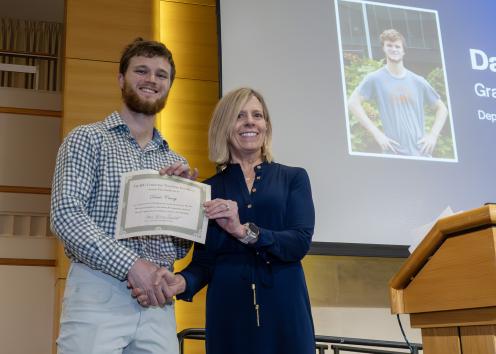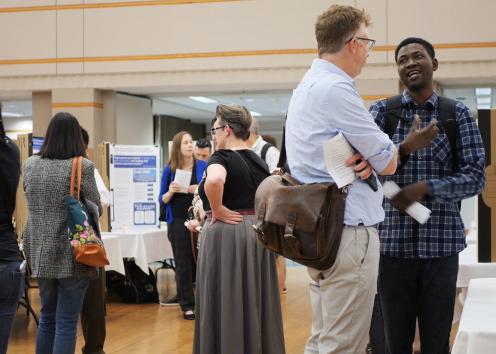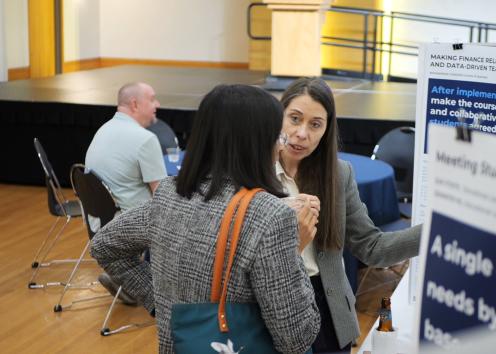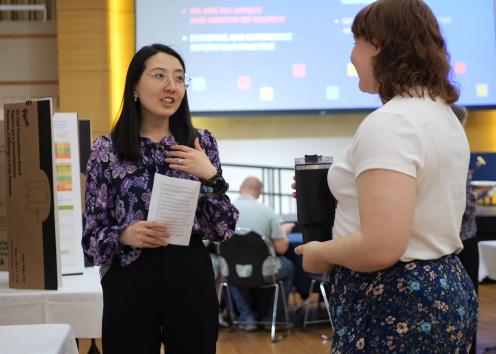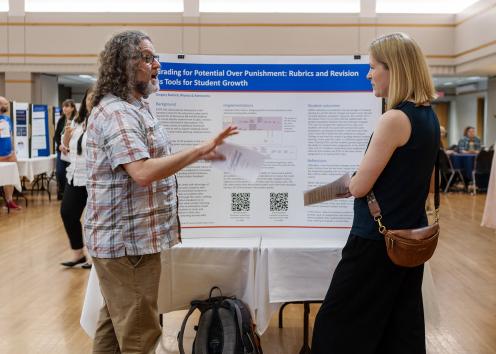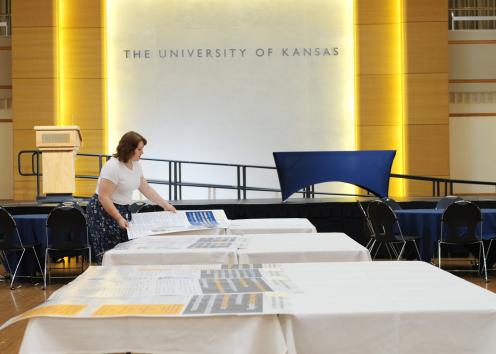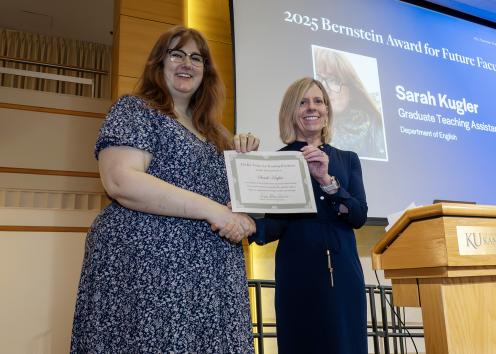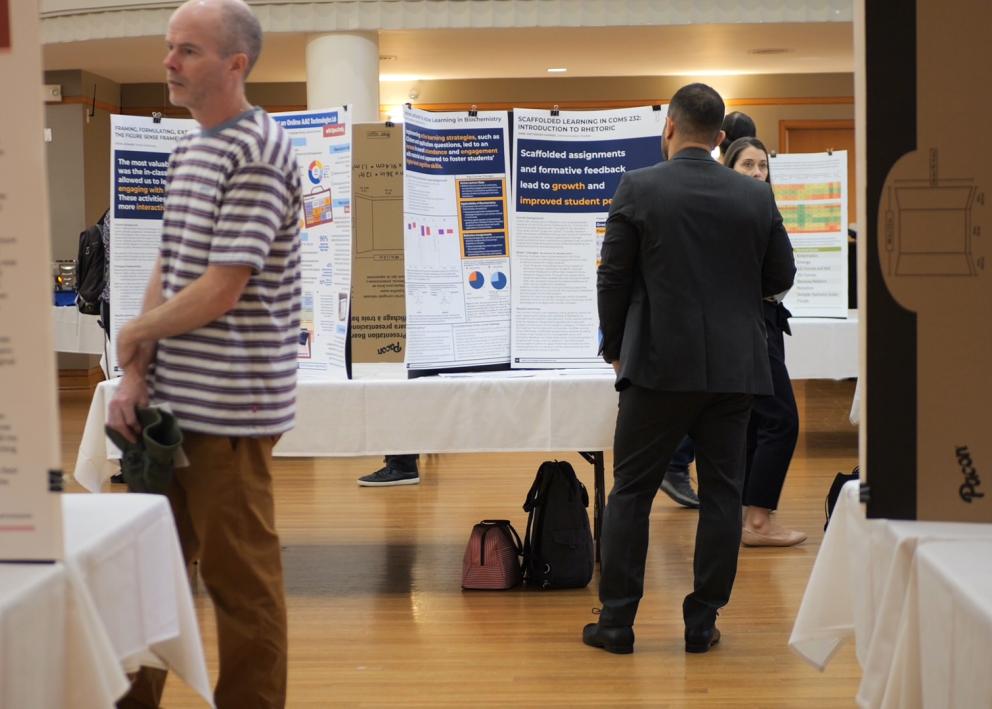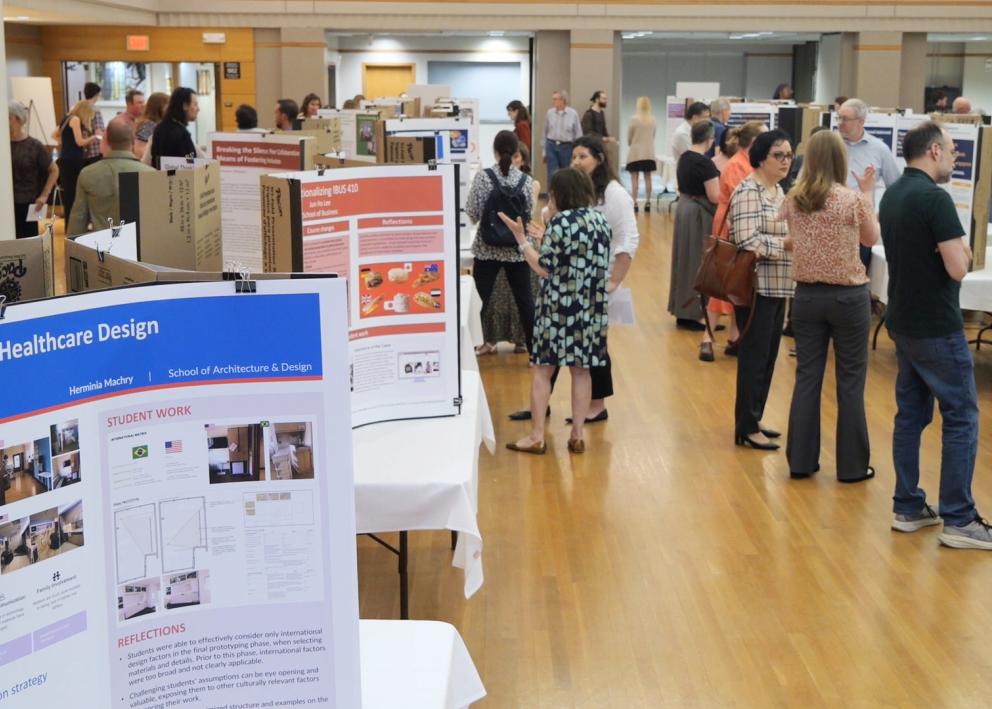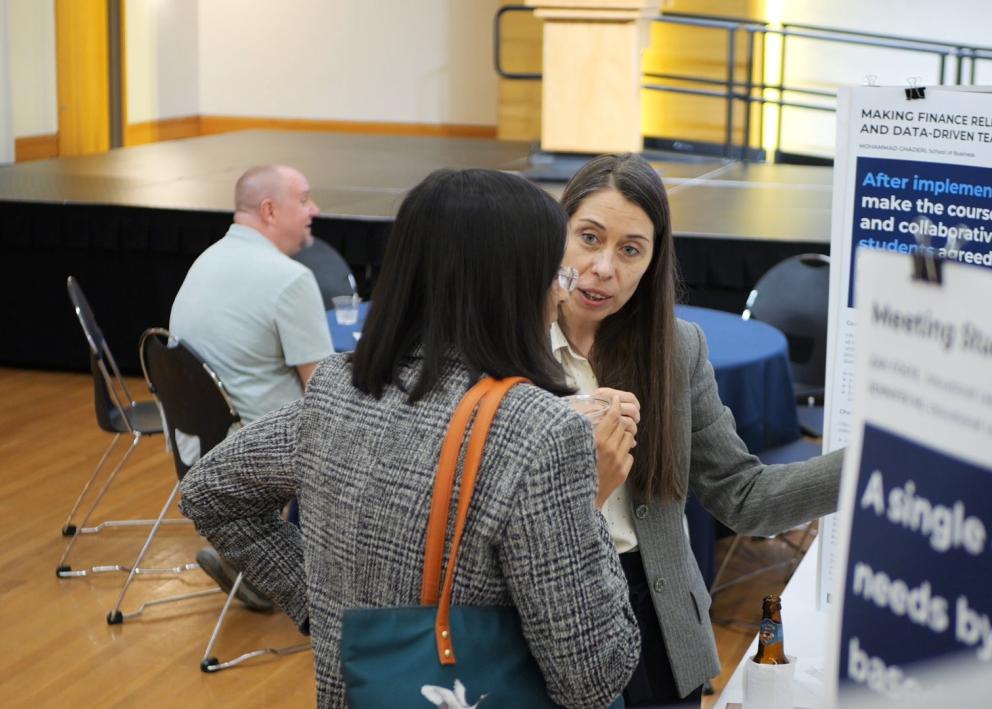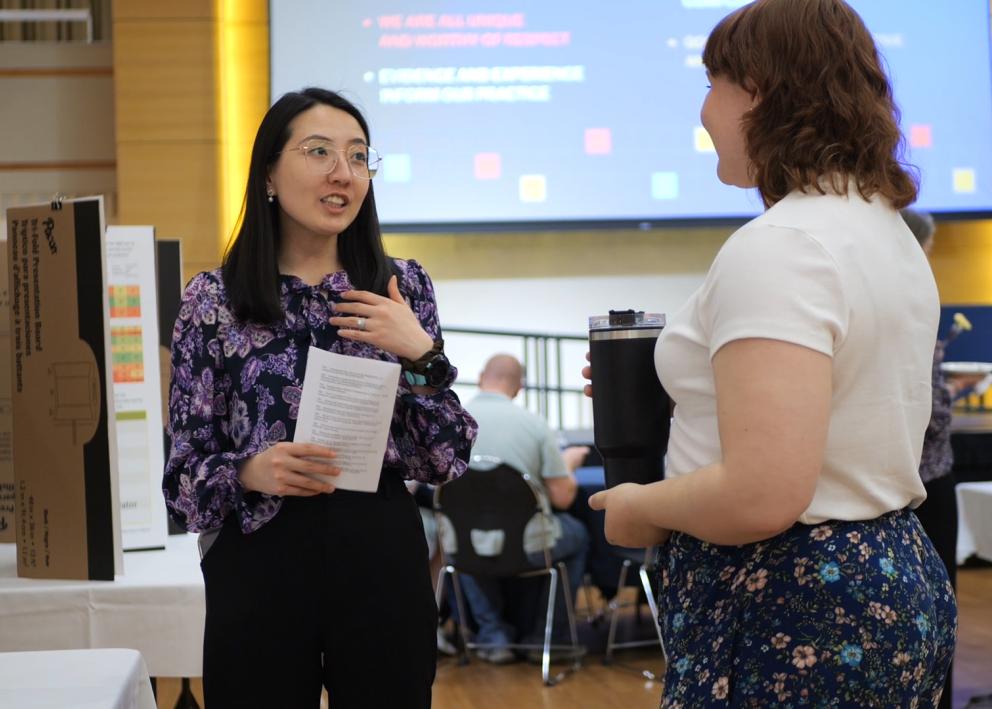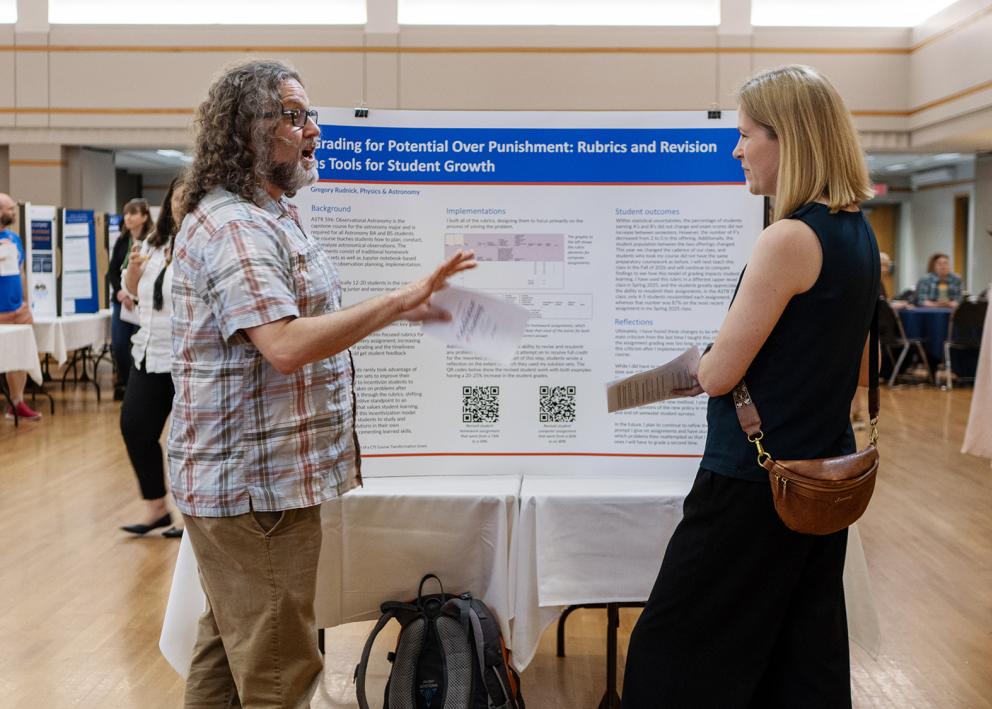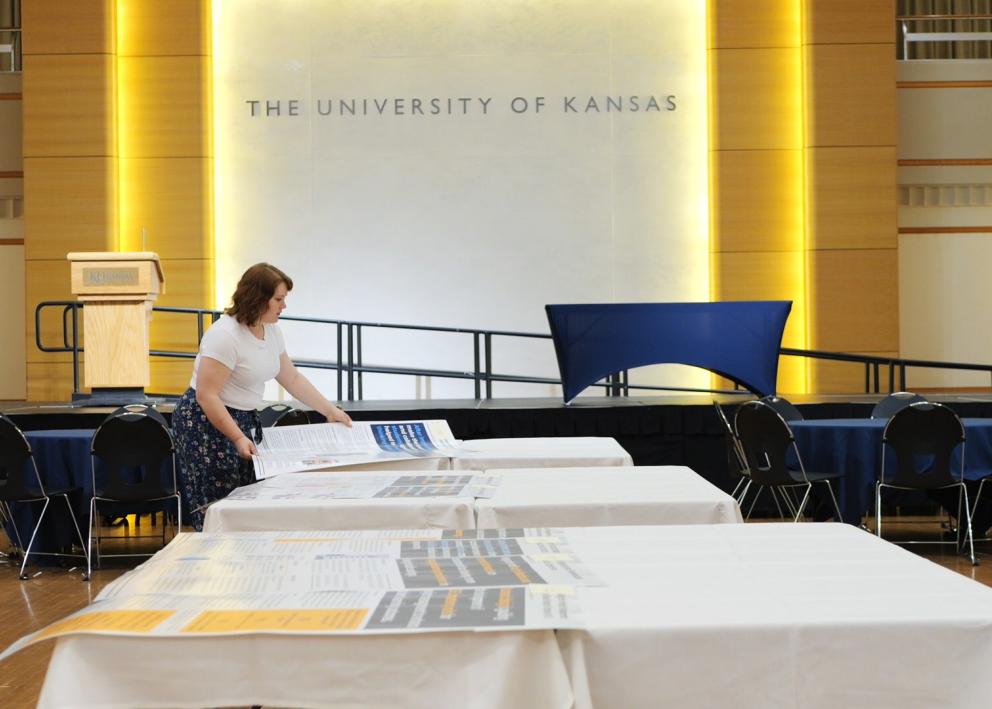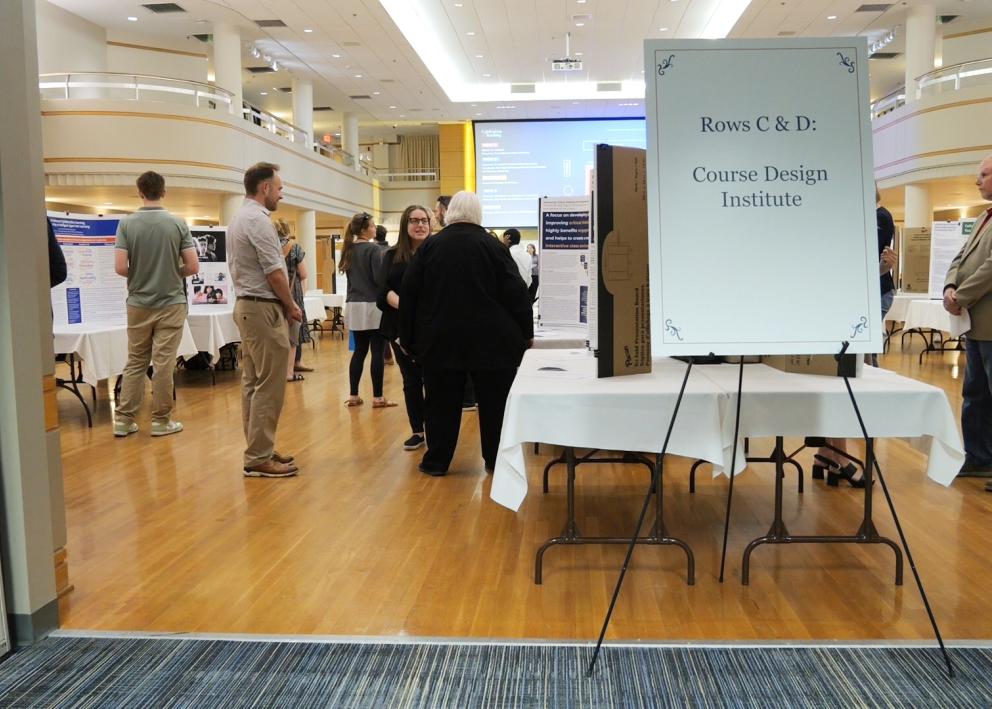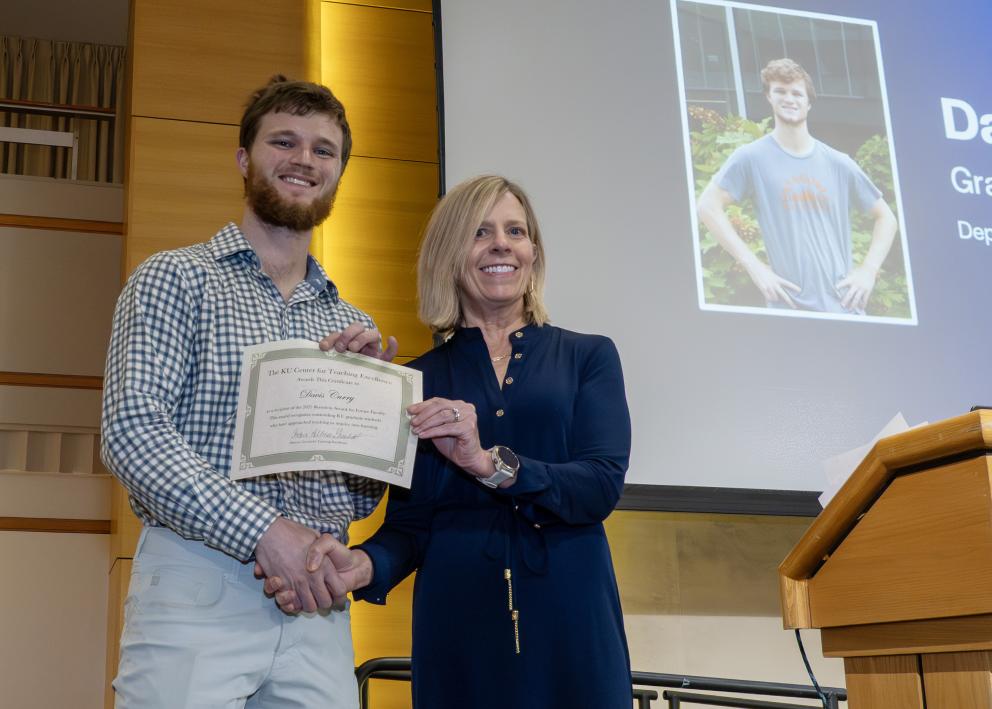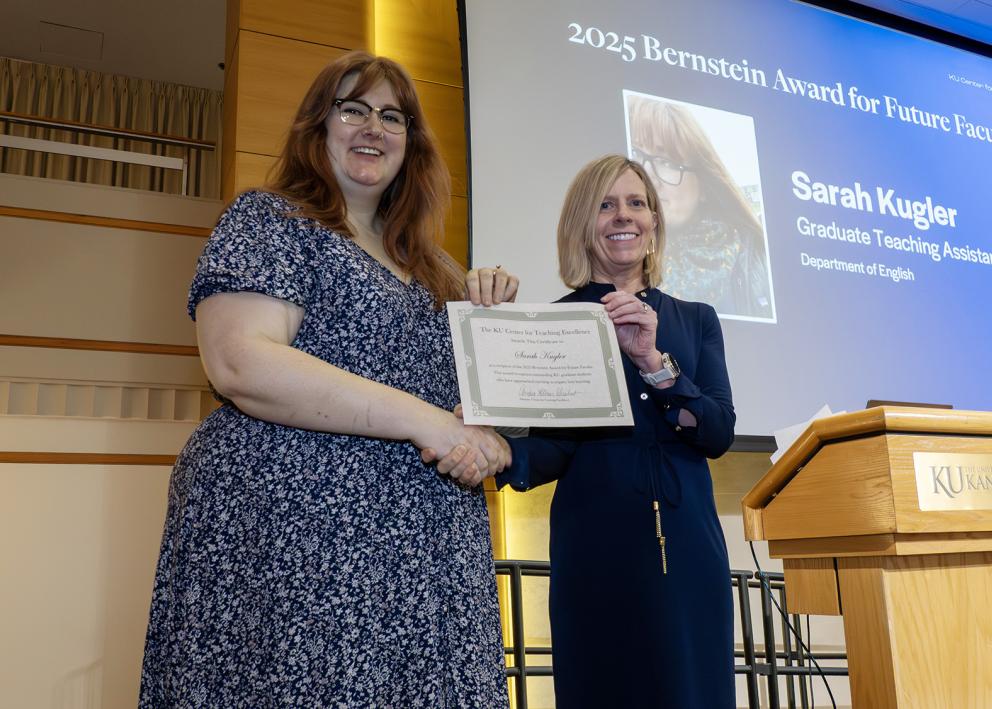Celebrating Excellence in Teaching Methods and Innovations at KU

May 9, 3-5 p.m. Kansas Union Ballroom
Celebration of Teaching Annual Poster Session and Reception. Join us for an afternoon of celebration, inspiration, and community at the Kansas Union Ballroom on May 9 from 3 - 5 p.m. Over 80 posters will be on display detailing the discovery and results of learning transformations from CTE programs.
Poster Highlight
Integrated AI tools like FileGPT and CrawIQ into a capstone Campaigns course, leads to enhanced student research, collaboration, and higher-quality client projects.

JMC's Alex Treaster Transforms Campaigns Course with AI Tools
Alex Treaster, Assistant Professor of the Practice in the William Allen White School of Journalism and Mass Communication, recently shared impactful results from integrating innovative AI tools into his capstone course, JMC 640 Campaigns in Digital Marketing Communications. With support from a CTE Course Transformation Grant, Treaster aimed to enhance student research, data organization, collaboration, and audience insights by introducing professional AI tools.
Students were provided access to FileGPT, which allowed them to build a custom "closed-loop" AI model using their own research, ensuring transparency and enabling them to organize, summarize, and find new connections in their data. They also utilized CrawIQ, an AI-powered audience research app, to complement their traditional research methods, aiding in the development of customer personas and journey mapping for their real-world client, the C You in the Major Leagues Foundation.
The outcomes were impressive: students produced higher-quality campaign plansbooks, demonstrating strong engagement and design. Treaster noted a significant increase in student collaboration, as the AI tools facilitated easier sharing of research findings, leading to more robust in-person discussions. Furthermore, students reported feeling more comfortable exploring other AI tools, like Perplexity, and found the AI integration beneficial for their work in Campaigns and other courses.
Treaster plans to continue incorporating these AI tools, focusing on when and where they best fit the research process and fostering even more collaborative opportunities.
Course Transformation Reflections
Take a look at a few reflections from more than 70 posters displayed at the Celebration of Teaching.

Students developed better understanding of complex ecological topics and how what they learned in class applies within their fields of study and potential careers.
Megan Kaminski, professor of Creative Writing and Environmental Studies, presents a poster detailing the creation of an Ecology and Arts Lab.
The poster, a part of CTE’s Faculty Seminar on Interdisciplinary Teaching, explores the teaching question: How would enhancing the arts-based learning component of the class provide an opportunity for students to make connections between the theoretical/scientific course concepts into their other studies, future careers, and larger lives
Through a partnership with the KU Library Makerspace, Kaminski created an ecology and arts lab to have a physical space, materials, and instructional assistance for three new class projects.

Scaffolded assignments and formative feedback lead to growth and improved student performance.
Anne Kretsinger-Harries, an assistant specialist in the Department of Communication Studies, shares her course design poster titled: Scaffolded Learning in Coms 232: Introduction to Rhetoric.
The poster, a part of the CTE Course Design Institute, shares her experience scaffolding mini-assignments to help students prepare for major projects.
The course improved student performance through graded assignments, qualitative feedback, and scaffolded projects. A new final project encouraged students to apply rhetorical concepts to their lived experiences on campus, further demonstrating their understanding of course material.

Implementing active learning strategies, such as iClickers and application questions, led to an increase in overall attendance and engagement with material and appeared to foster students’ higher-level cognitive skills.
Patrick Lansdon, an assistant teaching professor in the Biology Department, shares his course design institute poster titled: Active Lectures for Active Learning in Biochemistry.
The poster, a part of the CTE Course Design Institute, shares his experience answering the teaching question: Can implementing a more active lecture style increase student engagement with material and foster a greater appreciation of its applicability?
Lansdon made key changes in his biochemistry course including implementing an active lecturing style using iClickers as an interactive element. Real world applications were emphasized through guest speakers and developing application problems that challenge students to use lecture content in novel ways.
